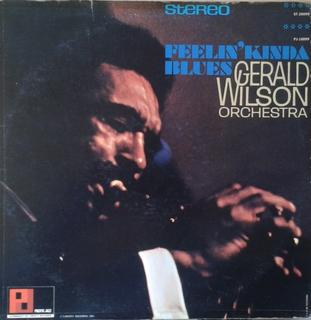Pacific Ocean Blues is a 1977 song by Dennis Wilson.
Pacific Ocean Blues may also refer to:
- Pacific Ocean Blue, a 1977 album by Dennis Wilson
- Pacific Ocean Blues (album), a 2002 album by Gigolo Aunts
Pacific Ocean Blues is a 1977 song by Dennis Wilson.
Pacific Ocean Blues may also refer to:

Dennis Carl Wilson was an American musician who co-founded the Beach Boys. He is best remembered as their drummer and as the middle brother of bandmates Brian and Carl Wilson. Dennis was the only true surfer in the Beach Boys, and his personal life exemplified the "California Myth" that the band's early songs often celebrated. He was also known for his association with the Manson Family and for co-starring in the 1971 film Two-Lane Blacktop.

The Beach Boys Love You is the 21st studio album by American rock band the Beach Boys, released April 11, 1977, on Brother/Reprise. Sometimes called the band's "punk" or "synth-pop" album, Love You is characterized for its pioneering use of synthesizers and its juxtaposition of adolescent-oriented lyrics with the adult band members' gravelly vocals.

Ricky Fataar is a South African musician who has performed as both a drummer and a guitarist. He gained fame as an actor in The Rutles: All You Need Is Cash, a spoof on the Beatles, in which he performed as a member of The Rutles. He was also a member of The Beach Boys between 1971 and 1974, and has been the drummer for Bonnie Raitt for the last 35 years. Fataar is also a record producer, and has worked on projects scoring music to film and television.

Gerald Linford Beckley is an American singer, songwriter, and musician, and a founding member of the band America.

Pacific Ocean Blue is the only studio album by American musician Dennis Wilson, co-founder of the Beach Boys. When released in August 1977, it was warmly received critically, and noted for outselling the Beach Boys' contemporary efforts. Two singles were issued from the album, "River Song" and "You and I", which did not chart.
Holy man is a person, usually an ascetic, who is exceptionally pious or religious.
"River Song" is a song written by Dennis Wilson and his younger brother Carl Wilson. It served as the opening track for Dennis Wilson's 1977 debut solo album Pacific Ocean Blue. The song is Wilson's debut solo single after his 1970 collaboration with Daryl Dragon, "Sound of Free". "River Song" was released in Europe with the B-side being "Farewell My Friend". The single however, failed to chart. The track, as with the rest of the album, was credited as being produced by Dennis Wilson and his close friend Gregg Jakobson. Wilson sings the lead vocals on this and every other track on the album.
"You and I" is a song written by Dennis Wilson, his former wife Karen Lamm-Wilson and close friend Gregg Jakobson. It was released as the eighth track on Dennis Wilson's 1977 debut solo album Pacific Ocean Blue. The song was released as a single in the United States, with the B-side being "Friday Night". The single failed to chart. The track, as with the rest of the album, was credited as being produced by Dennis Wilson and his close friend Gregg Jakobson.
"Pacific Ocean Blues" is a song written by Dennis Wilson and his cousin Mike Love. It was released as the ninth track on Dennis Wilson's 1977 first solo album Pacific Ocean Blue. The track, as with the rest of the album, was credited as having been produced by Wilson and his close friend Gregg Jakobson.
Gregg Jakobson is an American songwriter who was a friend and songwriting partner of Dennis Wilson of the Beach Boys, and a prosecution witness in the murder trials of members of the Manson Family.
"River Song" may refer to:

Gerald Stanley Wilson was an American jazz trumpeter, big band bandleader, composer, arranger, and educator. Born in Mississippi, he was based in Los Angeles from the early 1940s. He arranged music for Duke Ellington, Sarah Vaughan, Ray Charles, Julie London, Dizzy Gillespie, Ella Fitzgerald, Benny Carter, Lionel Hampton, Billie Holiday, Dinah Washington, and Nancy Wilson.
Moonshine is illicitly distilled high-proof liquor.
Phillip Sanford Wilson was an American blues and jazz drummer, a founding member of the Art Ensemble of Chicago, and a member of the Paul Butterfield Blues Band.

John Hanlon is an American record producer and recording engineer.

Many recordings and performances by the Beach Boys have attained some level of public circulation without being available as a legal release, and several albums by the band or its individual members were fully assembled or near completion before being shelved, rejected, or revised as an entirely new project. Since the early 1980s, numerous rarities compilations and album reissues have been released with studio outtakes included as bonus tracks.

Feelin' Kinda Blues is an album by the Gerald Wilson Orchestra recorded in 1965 and released on the Pacific Jazz label.
What's Wrong may refer to:
Dennis Matthew Budimir was an American jazz and rock guitarist. He was considered to be a member of The Wrecking Crew.

Bambu is an unfinished studio album by American songwriter-musician Dennis Wilson, co-founder of the Beach Boys, intended as the follow-up to his debut Pacific Ocean Blue. In 2008, recordings from the album were compiled as bonus tracks for the first CD issue of Pacific Ocean Blue. In 2017, the same track selection was given a dedicated release, titled Bambu (The Caribou Sessions).